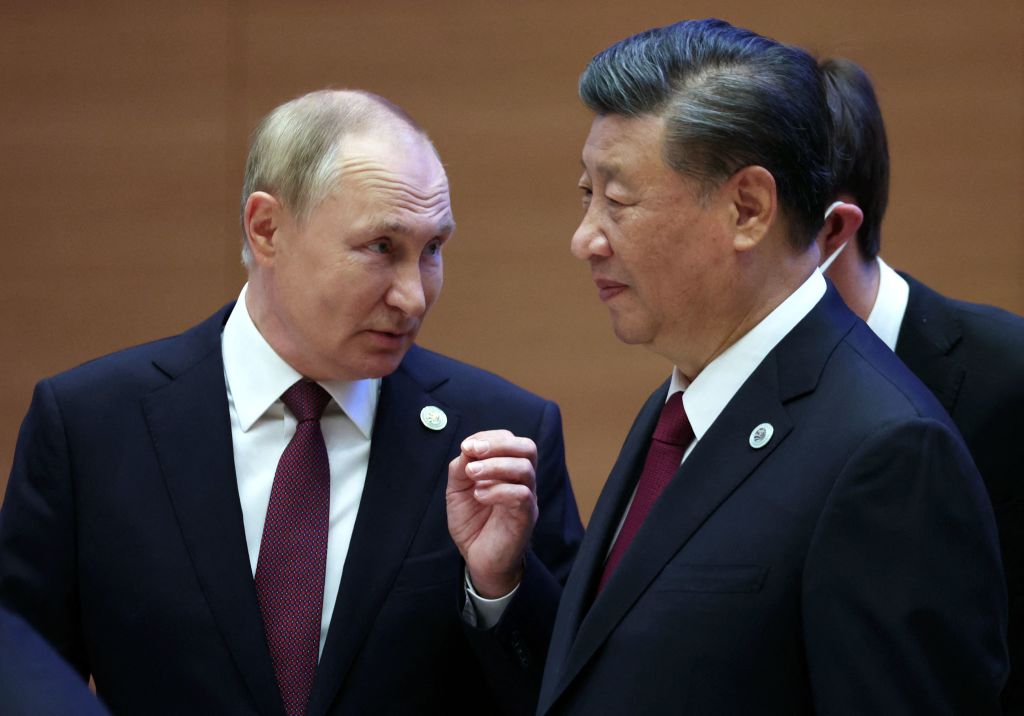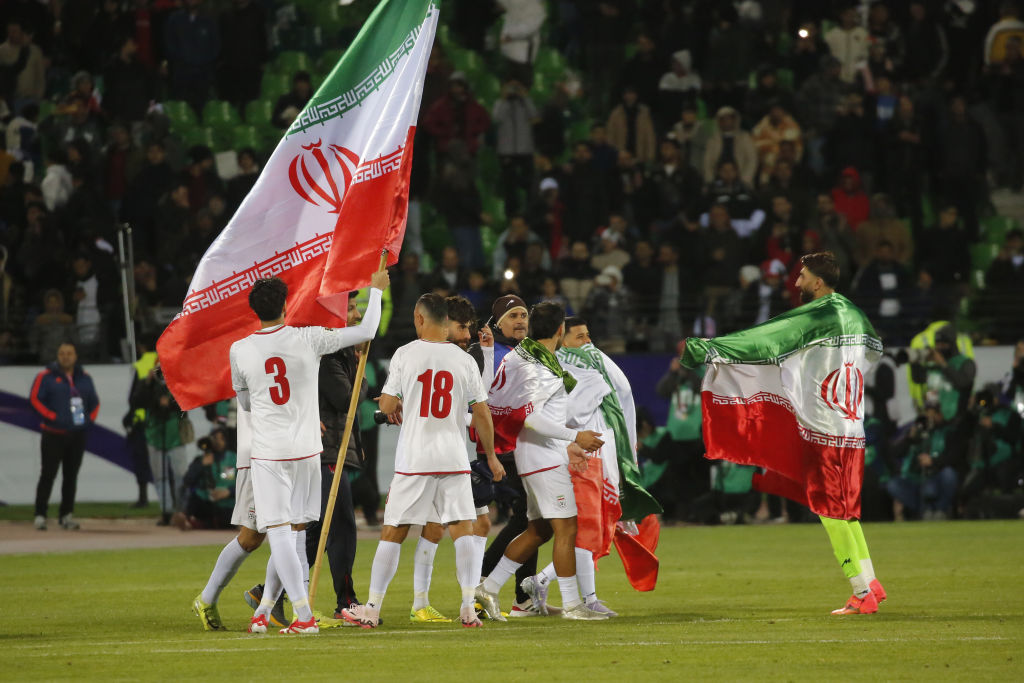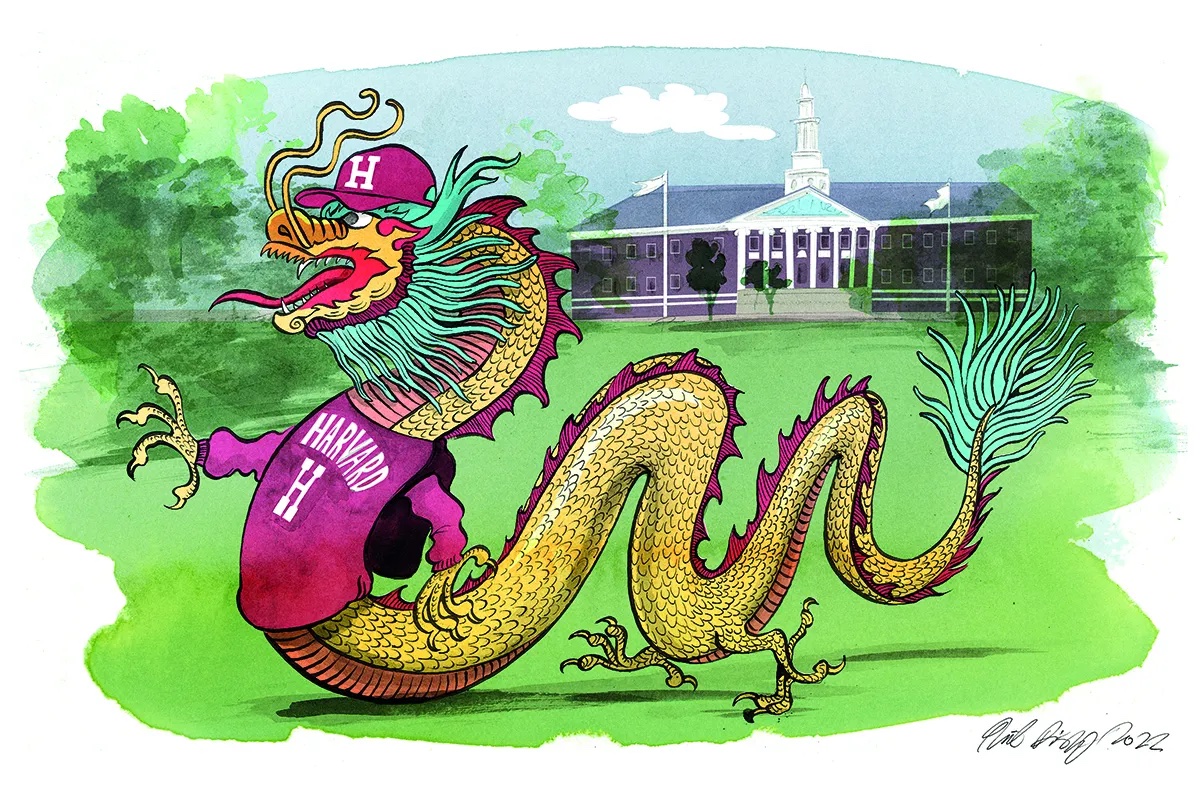Russian President Vladimir Putin and Chinese President Xi Jinping met in Uzbekistan during this week’s Shanghai Cooperation Organization (SCO) summit — and a lot had happened since their last meeting. With the Russian Army on the back-foot in Ukraine and its economy forecasted to contract by over 4 percent in 2022, Putin is in a far worse position.
Whether this impacted the meeting is hard to tell, though Putin indicated that Xi had “questions and concerns about [Ukraine].” Nevertheless, both countries expressed support for one another, touching on their respective concerns. Xi stated that China wanted to work with Russia “to set an example of a responsible world power,” a jab at the Western powers that both countries are positioning themselves against. Putin was even more explicit, condemning the “provocations of the United States and their satellites in the Taiwan Strait,” and expressing support for China’s stance on Taiwan.
Both countries have reasons to maintain close ties. Russia needs China as an economic buffer against what promises to be a long-term decline in trade with the West, particularly as the European Union weans itself off of Russian oil and gas, however willingly or unwillingly. As most of the world’s major economies shrink or eliminate their economic footprints in Russia, the importance of China rises. Trade between the two countries hit $117 billion from January to August, an increase of over 31 percent, while China has increased its purchases of Russian fossil fuels by about 60 percent.
For China, Russia is a useful partner in its wider aim of contesting the US-led global order. Xi’s foreign policy has been dominated by efforts to reassert China as a key player in global politics. In 2013, he started the Belt and Road Initiative, which facilitates infrastructure investment in countries around the world with the aim of increasing both flows of trade and the centrality of China in the global economy. He has also drastically increased China’s destabilizing military activity along its borders. From the Senkaku Islands to the Indian border to the South China Sea, Xi has shattered global norms and routinely infringed on the sovereignty of neighboring nations. Perhaps most significant is China’s escalation around Taiwan. After Speaker of the House Nancy Pelosi visited the island in August, China launched unprecedented drills, violating the Median Line and carrying out what was widely understood as a test-run for a blockade.
As the West — particularly the US — becomes more concerned about China, any global partner to provide a counterbalance is important for Xi. Russia is a suitable fit in this regard: Xi and Putin have a good relationship and share a distaste for anything that hints at democracy. Their nations both have border disputes with countries backed by the West and frosty ties with the US.
But Russia is also expendable. Putin needs Xi, but Xi does not need Putin. Russia’s future prospects are dim, and its military’s reputation has been severely diminished after its failures in Ukraine. This is evident in the fact that Xi has decided that supporting Russia in its war is not a hill worth dying on. While Chinese media has echoed Russian propaganda about the conflict, and China’s UN delegation has abstained from the critical votes criticizing Russia, the country’s businesses have generally adhered to Western sanctions.
The summit in Samarkand, however, had a more notable development that has been somewhat overshadowed by the Putin-Xi meeting: Iran got another step closer to becoming a full member of the SCO. This is another indication of an increasingly concerning axis that is forming amongst the authoritarian powers of the world. With Russia’s purchase of hundreds of drones from Iran, and probing of North Korea for a supply of arms, it is hard not to see a growing interdependence between these actors. The close partnership between China and Russia — even with its limitations — will be what makes this axis dangerous for the West. China has economic and military might by itself, but if it is combined with the disruptive powers of Russia, Iran, North Korea, and Venezuela, among others, a lot of damage could be done.
It remains to be seen if the Putin-Xi relationship will emerge intact from the war in Ukraine. Either way, the West will have a serious challenge on its hands if it hopes to counter a rising authoritarian bloc.

























